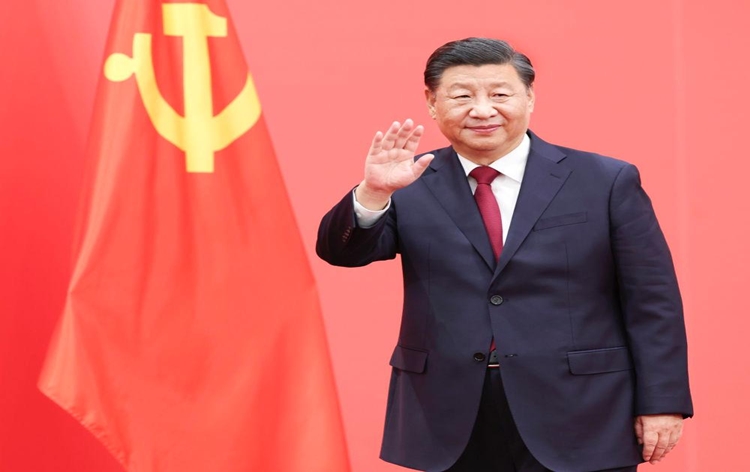Chinese leader Xi Jinping formally secured an unprecedented third term as China’s president on Friday as he embarked on a fresh five-year tenure, becoming country’s most powerful leader since Mao Zedong. In a largely ceremonial display on expected lines, nearly 3000 members of China’s rubber-stamp parliament – the National People’s Congress (NPC) voted unanimously for Xi, 69 who was the only candidate in fray.
Xi, who leads the ruling Communist Party, was also reappointed head of the national Central Military Commission. He was already the head of an identical party body overseeing the Chinese People’s Liberation Army (PLA).
Delegates to the 14th NPC also elected Zhao Leji, 66 as the new chairman of the parliament and Han Zheng, 68 as China’s new vice president. Delegates at the NPC will approve China’s new premier on Saturday which is widely thought to be Xi’s closest ally Li Qiang who will replace Li Keqiang to become China’s No.2 leader, in-charge of managing the world’s second-largest economy.
Xi’s trusted allies will be appointed to key government roles over the next two days as the first session of the 14th NPC will come to an end on Monday.
Experts said, with Li Keqiang out of scene and Li Qiang heading the State Council – China’s cabinet, Xi will enjoy unbridled powers. This may lead to further blurring of the fine line between the CCP and the government as the ruling Communist Party of China (CPC) is expected to significantly increase its direct control of the government.
Under Chinese government system, party leaders already occupy top government roles. Critics say, Xi has already purged his political adversaries from the party, the government and the military through his anti-corruption campaign in last 10 years.
Xi Jinping became the head of the ruling CPC and China’s President in 2013. Since then, Xi has tightened party’s grip over the country under “Xi Jinping Thought”. As he took over as the CPC head and Chinese President for the second time in 2018, he removed the term limit of two presidential terms by a constitutional amendment and paved way for his rule for life.
Even though the post of Chinese President is largely a ceremonial one, Xi consolidated his powers and control of the ruling communist party at the 20th National Congress of the CPC in October last year, by securing the precedent-breaking third term as its powerful head and cherry-picked his loyalists as part of the topmost group of leadership, known as the Politburo Standing Committee of the CPC to rule the country.
At the NPC closing ceremony on Monday, Xi Jinping is scheduled to speak as China faces multiple challenges including revival of economy battered by three years of COVID controls and worsening relations with the West over Taiwan and chip bans. The new premier will also hold a press conference later that day.
Meanwhile, China’s parliament on Friday approved a plan on reforming the institutions of the State Council – China’s cabinet, that would put public security, financial regulation and technology – areas now handled by the state – under direct control of the CPC.
This administrative overhaul will see sweeping changes in the central government institutions, including the formation of an overarching financial regulatory body and national data bureau and a revamp of its science and technology ministry.


Comment here